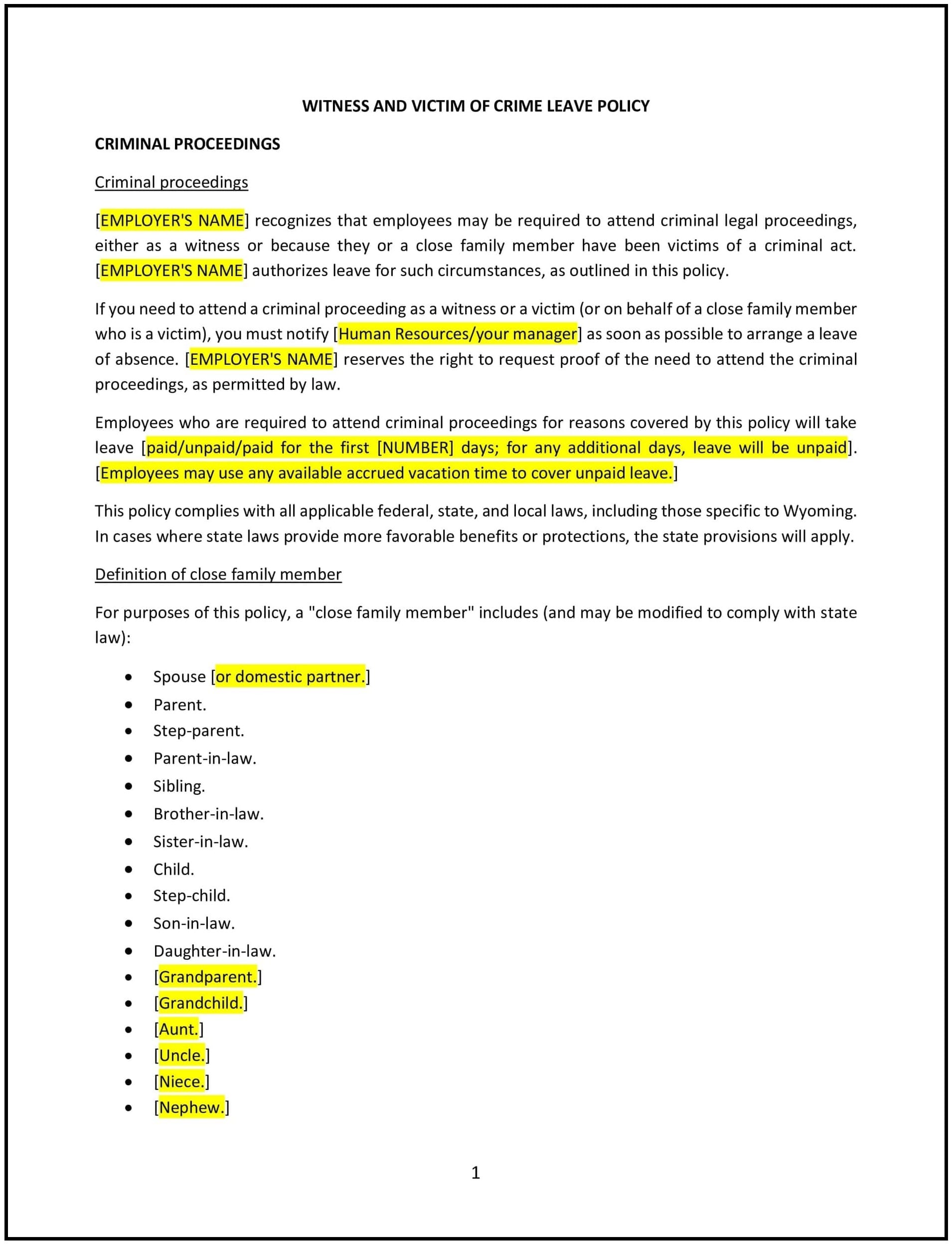Witness and victim of crime leave policy (Wyoming): Free template
Got contracts to review? While you're here for policies, let Cobrief make contract review effortless—start your free review now.

Customize this template for free
Witness and victim of crime leave policy (Wyoming)
In Wyoming, a witness and victim of crime leave policy provides employees with guidelines for taking time off to fulfill legal obligations or recover from crimes committed against them. This policy ensures that employees can address these situations without fear of retaliation or job loss, while the organization maintains compliance with state and federal laws.
This policy outlines eligibility, procedures for requesting leave, and protections provided to employees.
How to use this witness and victim of crime leave policy (Wyoming)
- Define leave eligibility: Specify the circumstances under which employees are eligible for leave, such as attending court as a witness, testifying, or seeking medical or counseling support as a crime victim.
- Outline request procedures: Provide steps for employees to request leave, including submitting a formal request to their supervisor or HR and providing documentation, such as court notices or police reports.
- Detail leave duration: Specify the maximum length of leave allowed and whether the leave is paid, unpaid, or a combination of both.
- Ensure job protection: Clarify that employees are entitled to return to their roles or equivalent positions following leave, in accordance with Wyoming labor laws.
- Support compliance: Align the policy with state and federal laws to ensure adherence to legal obligations and employee protections.
Benefits of using a witness and victim of crime leave policy (Wyoming)
A witness and victim of crime leave policy provides several advantages for Wyoming businesses:
- Supports compliance: Supports alignment with legal requirements, minimizing the risk of disputes or penalties.
- Protects employees: Offers a framework for employees to fulfill legal obligations or recover without fear of retaliation.
- Promotes workplace trust: Demonstrates a commitment to employee well-being and support during difficult times.
- Enhances clarity: Provides clear guidelines for both employees and managers, reducing misunderstandings.
- Adapts to local needs: Reflects Wyoming’s unique legal and community-oriented environment.
Tips for using a witness and victim of crime leave policy (Wyoming)
- Communicate effectively: Share the policy with employees during onboarding and ensure it is readily accessible.
- Train managers: Provide training to supervisors on handling leave requests related to legal obligations or victim support.
- Document requests: Maintain accurate records of leave requests and approvals to ensure compliance and transparency.
- Foster a supportive culture: Encourage open communication and provide additional resources, such as access to counseling services.
- Review periodically: Update the policy to reflect changes in laws, workplace dynamics, or employee needs.